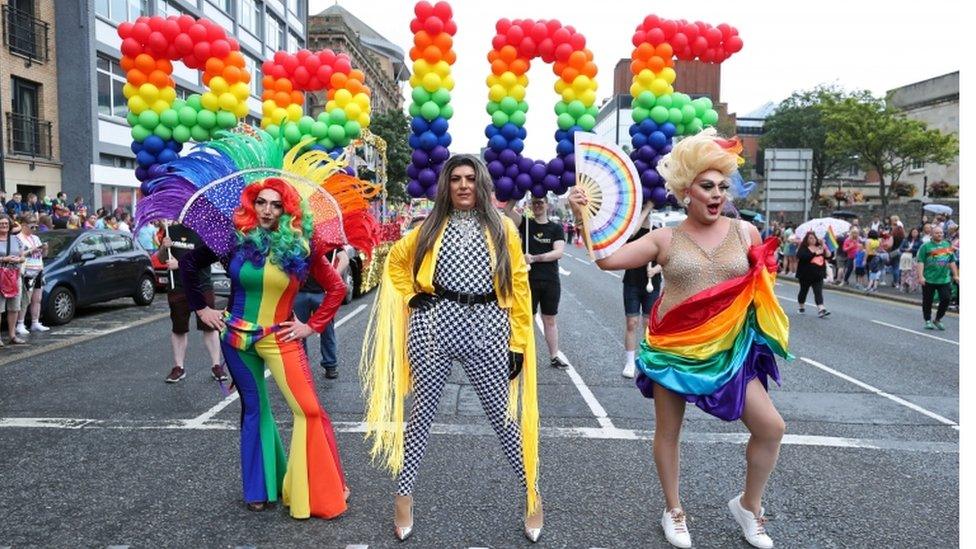Brexit: Varadkar's trip strong on symbolism but differences remain
- Published
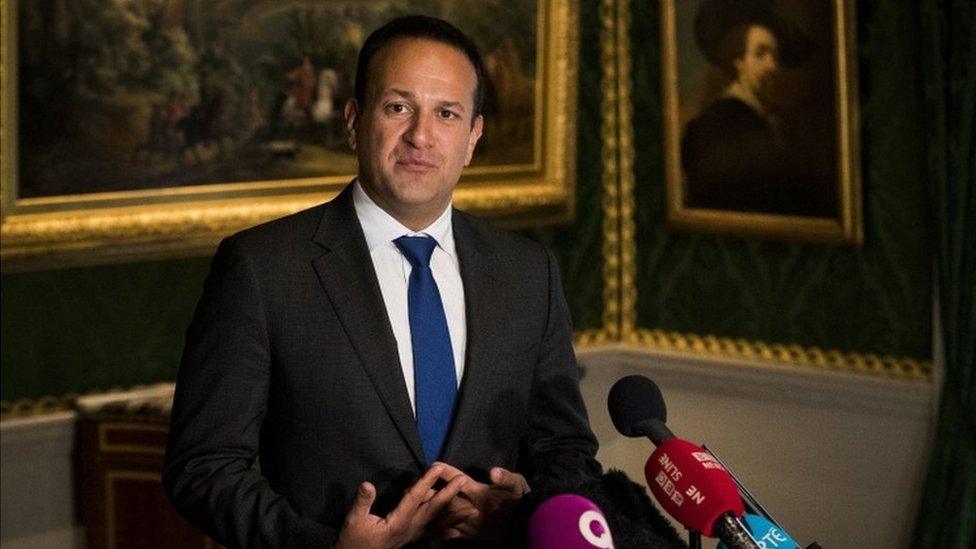
Leo Varadkar spoke to the press after meeting business leaders at Hillsborough Castle
It's not hard to read into the optics of the setting for the taoiseach's (Irish prime minister) latest press conference.
Hillsborough Castle is the royal residence in Northern Ireland.
Days after Boris Johnson's quick in-and-out visit to Northern Ireland, his Irish counterpart is now on his second visit here in under a week.
Some will dismiss the symbolism as coincidental but in politics events are rarely left to chance.
With talk of a no-deal Brexit on the rise yet again, the Irish government was doing the rounds on Tuesday.
On that very topic, Leo Varadkar's message has not changed: the Republic of Ireland wants a deal but it must be the agreement that has already been negotiated, with the Irish border backstop intact.
His finance minister, Pascal Donohoe, is making the same case in London.
Mr Varadkar met business leaders in Hillsborough and is giving a speech at a youth event in north Belfast, before taking part in the leaders' debate at the Féile An Phobail festival in west Belfast.
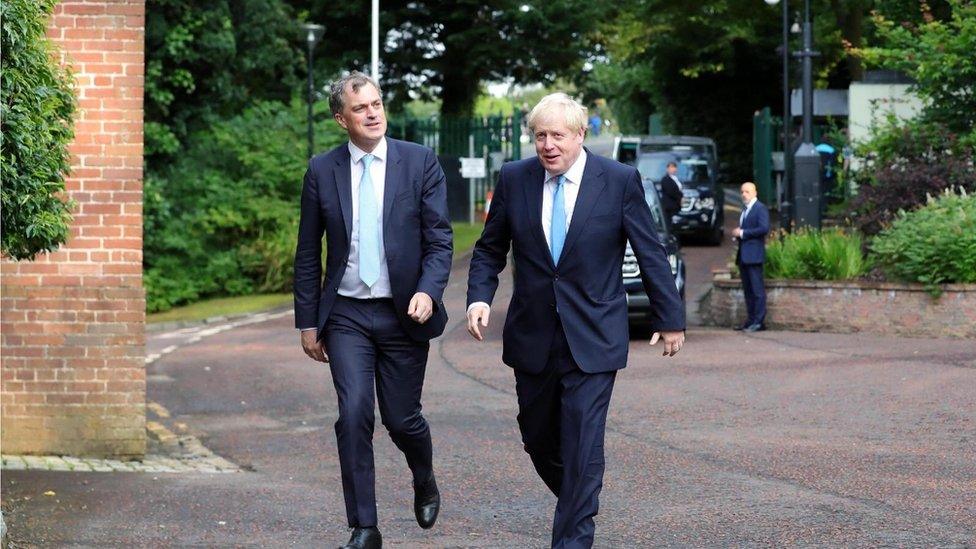
NI Secretary Julian Smith with Prime Minister Boris Johnson during their visit last week
Whistle-stop tour
Compare his stance on Brexit and Northern Ireland in recent days with the approach of the British government.
Boris Johnson's whistle-stop visit included discussions with the five main Stormont parties to discuss restoring devolution and the Brexit deadlock - but he did not meet with business leaders or appear for a photo call.
Critics of the new prime minister say Mr Johnson kept out of sight because the hard questions on the Irish border and how to avoid checks have not gone away.
The nationalist parties and cross-community Alliance Party said the new occupant of Number 10 has "no understanding" of the matter and no plan to sort it out - but the unionist parties, and Mr Johnson's allies in the DUP defended his visit and meetings with them.
Mr Johnson says he is committed to finding a way through the Brexit maze, but his precondition for further negotiations is entirely premised on scrapping the backstop.
The Irish government and the EU have said umpteen times there is no chance of that happening.
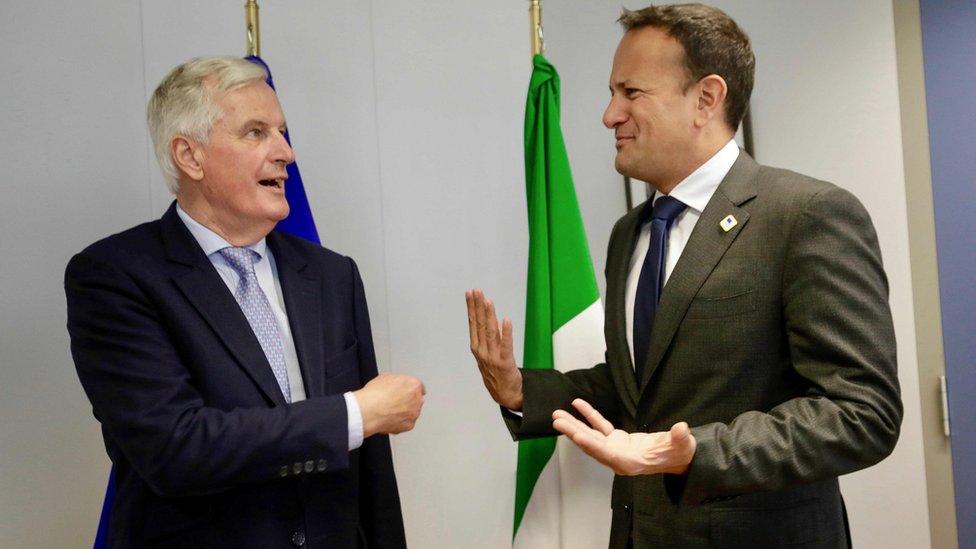
EU chief Brexit negotiator Michel Barnier and Leo Varadkar in Brussels on 20 June
Any wiggle room right now is surely lacking: so does a no-deal Brexit therefore loom large - given both the UK and EU have yet to blink on the backstop?
As my colleague Shane Harrison, BBC News NI's Dublin Correspondent, reported last week, Irish sources say suggestions Dublin has come under EU pressure to relent on it are "codswallop".
Mr Varadkar had his own take on media reporting of the backstop deadlock, when asked if he was "frustrated" with criticism of the Irish government over its steadfast defence of the backstop.
Before stepping away from the podium, Mr Varadkar said: "Not at all but I do wish it was challenged a bit more."
He has invited Mr Johnson to Dublin to talk face-to-face about Brexit - but there's no indication that the prime minister intends to do so, unless Ireland shifts its position.
For now, the two governments seem poles apart. The facts haven't changed - but some of the faces and feelings have.
- Published6 August 2019
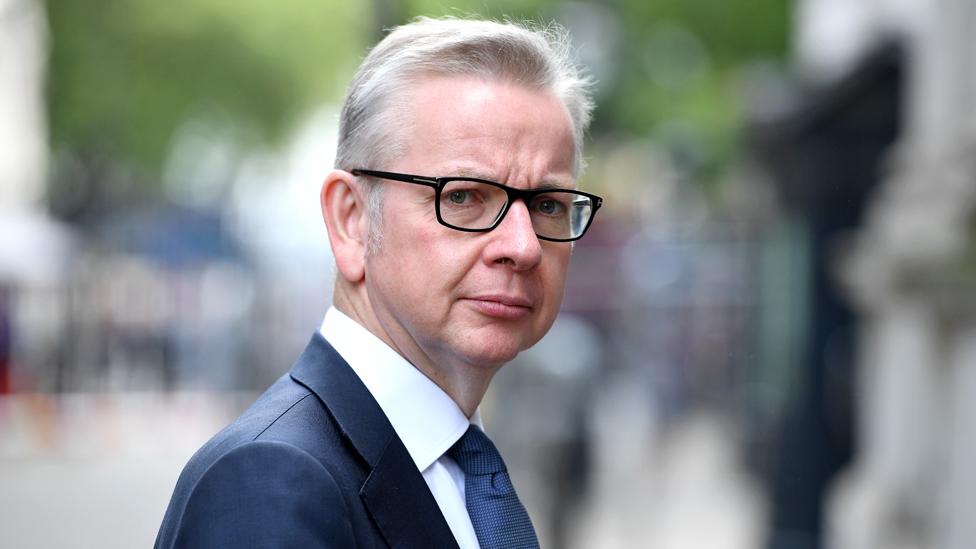
- Published6 August 2019
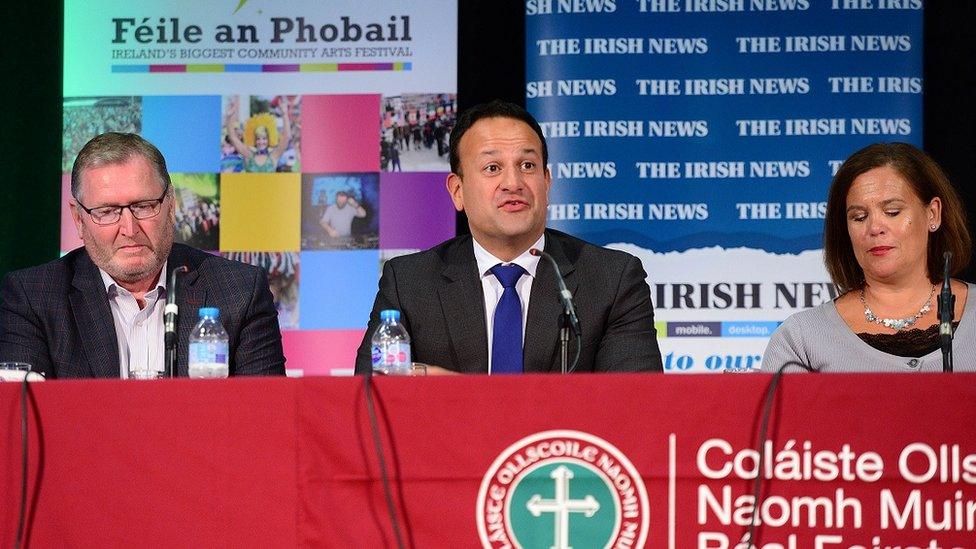
- Published3 August 2019
